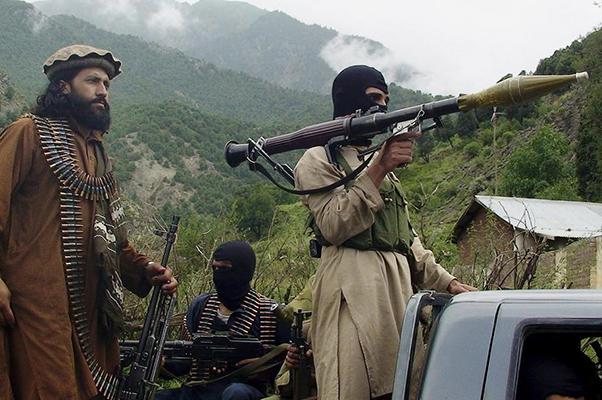Pakistan’s Taliban said, on 28 November, that they have called off a shaky ceasefire agreed with the government in June and ordered fighters to stage attacks across the country.
The Tehreek-e-Taliban Pakistan (TTP), a separate entity from the Taliban in Afghanistan but sharing a similar Islamist ideology, have been responsible for hundreds of attacks and thousands of deaths since emerging in 2007.
They agreed to a truce earlier this year after Afghanistan’s new Taliban rulers took a prominent role in brokering peace talks, but negotiations made little progress and there were frequent breaches.
“We… have shown our continued patience so that the negotiation process is not sabotaged,” the TTP said in a statement.
“But the army and intelligence agencies do not stop and continue the attacks, so now our retaliatory attacks will also start across the country.”
Less than two weeks ago the TTP claimed an ambush that killed six policemen in northwest Pakistan, claiming they were plotting a “raid” on their base in the area.
Since 18 November, the military has been patrolling the area in an attempt to root out militants, with helicopter gunships shelling their hideouts.
The TTP was founded in 2007 by Pakistani jihadists who fought alongside the Taliban in Afghanistan in the 1990s before opposing Islamabad’s support for American intervention there after 9/11.
For a time they held vast tracts of Pakistan’s rugged tribal belt, imposing radical Islamic law and patrolling territory just 140 kilometres (85 miles) from the Pakistan capital.
The Pakistani military came down hard after 2014 when militants raided a school for children of army personnel and killed nearly 150 people, most of them pupils.
Its fighters were largely routed into neighbouring Afghanistan, but Islamabad claims the Taliban in Kabul are now giving the TTP a foothold to stage assaults across the border.
In the year since the Taliban took over Afghanistan, Pakistan has seen a 50 per cent surge in militant attacks, according to the Pak Institute for Peace Studies (PIPS).
Lawmakers and business owners in northwest Pakistan have also told AFP that instances of TTP blackmail in the area have increased.
The presence of militants in the area is a deeply sensitive topic for Islamabad, which has long struggled to establish a writ there.
Analyst Saad Khan, a Peshawar-based retired brigadier, played down the significance of the TTP statement saying the ceasefire was barely observed anyway.
“The Afghan Taliban have assured the whole world that they will not allow their territory to be used against any other country,” he told AFP.
“It is important to initiate serious negotiations with the Afghan Taliban on this issue and make them aware of the seriousness of the matter.”


















